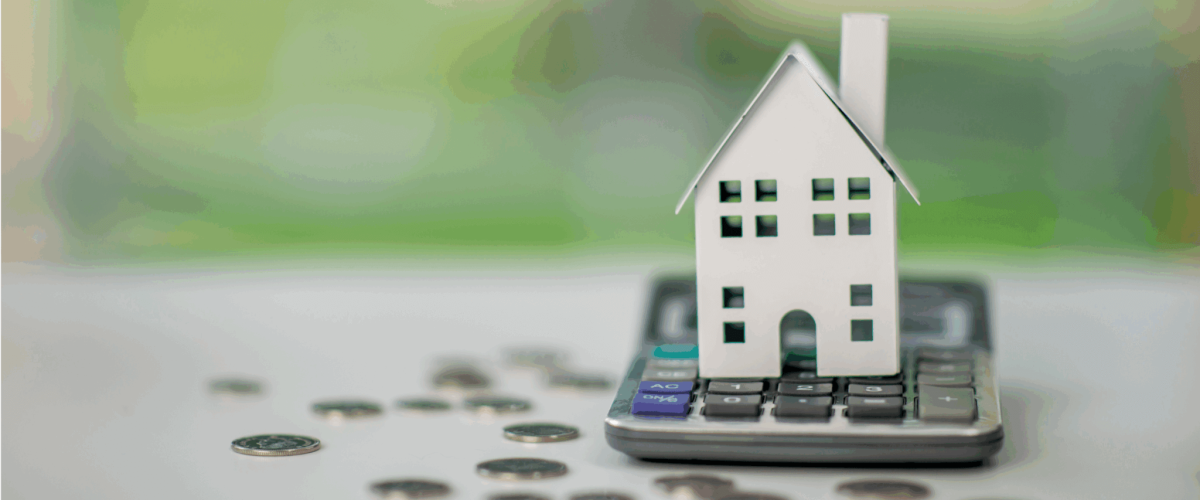Credit Score Dropped After Paying Off Mortgage? What You Need to Know

Paying off your mortgage should feel like a major win—but then your credit score drops, and you’re left wondering why. Don’t worry, you’re not alone. In this post, we break down why your score may dip after closing a home loan, how long it typically lasts, and what steps you can take to recover quickly and keep your credit healthy.
You finally did it—you paid off your home! That’s a huge milestone worth celebrating. But then, you check your credit score and notice something strange: it dropped. Wait, what? Shouldn’t being debt-free boost your credit, not hurt it?
Many consumers are surprised when paying off a major account like a home loan results in a dip in their credit score. It feels like a step backward, but it’s actually a common and often temporary part of the credit game.
Let’s break down why this happens, what else could be causing it, how credit scores work, and what you can do to bring yours back up.

Why Your Credit Score Dropped After Paying Off Your Mortgage
At first glance, it doesn’t make much sense. You paid off a large debt in full. That should be a win, right? And it is—but not always in the eyes of credit scoring models.
When you pay off your mortgage, the loan account is closed. That changes your credit profile in a few ways. First, you lose the positive contribution that the loan was making to your credit mix and payment history just by having the installment loan open.
These accounts fall under the “installment loan” category, and having a mix of different types of credit—like installments and revolving accounts—can help your score. Once the loan is closed, your credit might look less diverse.
Another factor is the length of credit history. Over time, closed accounts can eventually fall off your report, shortening your average account age. That’s another small ding in the scoring model.
Also, your home loan was likely reporting on-time payments every month. Now that it’s gone, that consistent positive reporting stops. It’s not hurting your score directly, but it does remove a piece of positive momentum.
Other Common Reasons for Credit Score Drops
Even if your score dropped after paying your loan off, there might be other things going on behind the scenes. Credit scores are sensitive, and even small financial moves can nudge them up or down.
One common culprit is applying for new credit account around the same time. A hard inquiry can shave a few points off your score, especially if you’ve had multiple applications in a short period.
High credit card debt can also weigh heavily on your score, especially if your credit utilization ratio creeps over 30% of your available credit. Even if you’re paying your cards off monthly, your reported balance might be high on the day the credit bureaus pull your info.
Missed or late payments are another major factor. They carry a big penalty, and even one slip-up can cause a noticeable drop.
Closing old revolving credit accounts can also impact your score. Like with a mortgage, it changes your credit mix and may shorten your credit history.
Sometimes, the issue isn’t even your fault. Credit report errors, identity theft, or inaccurate data can all mess with your score. That’s why it’s so important to keep an eye on your credit reports regularly.
How Long Will the Drop Last?
If you’re staring at your credit score wondering when it’ll bounce back, the good news is: probably sooner than you think.
In most cases, the dip caused by paying off a loan is short-term. If you maintain healthy credit habits—like keeping your credit utilization ratio low, paying bills on time, and avoiding unnecessary new credit or even new credit card debt—your score should start improving within a few months.
Credit scoring models constantly update as new data comes in. So while the closure of a major account like a mortgage may have triggered the drop, your positive habits can outweigh that impact over time.
That said, if your home loan was your only installment loan, or if your overall credit is now very limited, recovery might take a little longer. In that case, adding another type of credit, like a small personal or auto loan, could help balance things out.
How to Bounce Back After a Drop
If your score took a hit after paying off your home, don’t panic. The good news is that most credit score drops are temporary, and you can take action to improve your score over time.
First, make sure all your other credit accounts are in good shape, with more available credit than debt. Keep your credit card balances low and pay them off on time every month. This helps maintain strong utilization and payment history.
Second, don’t rush to close other accounts—especially old ones. Keeping those lines open can help you preserve your credit history.
If you no longer have any installment accounts on your credit report, consider adding a new loan in a low-risk way. A small personal loan or a credit-builder loan can reintroduce an installment account and contribute positively to your mix.
You should also check your credit reports from all three bureaus—Equifax, Experian, and TransUnion. Look for any errors or outdated information, and dispute anything that doesn’t look right.
Patience plays a big role here. Even if your score dropped, maintaining good credit habits will almost always lead to a rebound.
What Makes Up Your Credit Score?
If you’ve ever watched your credit score change and thought, “Why did that happen?”, you’re not alone. Credit scores can feel confusing, but they’re actually based on a handful of straightforward factors. Most lenders use the FICO score model, which breaks down your credit behavior into five main categories. Other credit scoring algorithms may be used as well.
The most important piece of the puzzle is payment history, which makes up 35% of your score. Lenders want to know you’re reliable, so paying your bills on time—every time—is crucial. Even one missed payment can hurt you.
Next is amounts owed, looking at how much credit card debt you have. This is referred to as your credit utilization ratio and accounts for 30% of your score. High balances—especially on credit cards—can signal risk, even if you’re making payments. Keeping your credit utilization low (ideally under 30%) helps your score stay healthy.
Then there’s length of credit history, contributing 15% to your score. This is typically displayed as the average age of credit. The longer you’ve had credit accounts open, the better. That’s why keeping old accounts active (even if you don’t use them much) can work in your favor.
Credit mix is another piece of the equation, worth 10%. This refers to the variety of credit you manage—credit cards, car loans, student loans, home loans. A balanced mix shows lenders you can handle different types of debt responsibly.
Finally, new credit rounds out the last 10%. Every time you submit a credit application for a new credit card or loan, a hard inquiry is added to your report, which can cause a slight, short-term dip.
Understanding Credit Score Ranges
Once you know how your score is calculated, it helps to understand what that number actually means. Credit scores fall into specific ranges, and each one paints a picture of your creditworthiness.
A score of 800 to 850 is considered excellent. This is where the best interest rates and loan terms live.
A score between 740 and 799 is very good. You’re likely to get approved for most credit products with solid terms.
A score between 670 and 739 is considered good. You’ll likely get approved for credit, but maybe not with the best rates.
Scores between 580 and 669 fall into the fair category. You may still qualify for credit, but often with higher interest rates.
Anything below 580 is considered poor. You’ll likely have difficulty getting approved for credit and may face higher costs when you do.
Conclusion
Paying off your mortgage should feel like a win—and it is! But if your credit score takes a dip afterward, don’t let it overshadow your achievement. It’s a temporary side effect of how credit scoring works, not a sign that you did something wrong.
Understanding the why behind the drop is the first step. From there, a few smart moves—like monitoring your reports, diversifying your credit, and keeping balances low—can help you bounce back faster than you think.
And if you’re ready for a little backup in that process, Dovly can help. Dovly is an AI-powered credit engine that helps you track, manage, and even dispute items on your credit report to get your score back on track—quickly and painlessly.
👉 Get started with Dovly today—it’s fast, easy, and free to try.
Frequently Asked Questions




